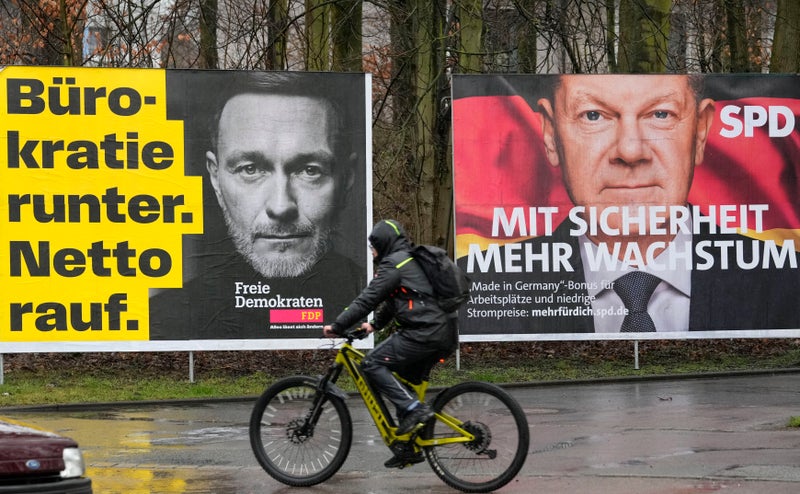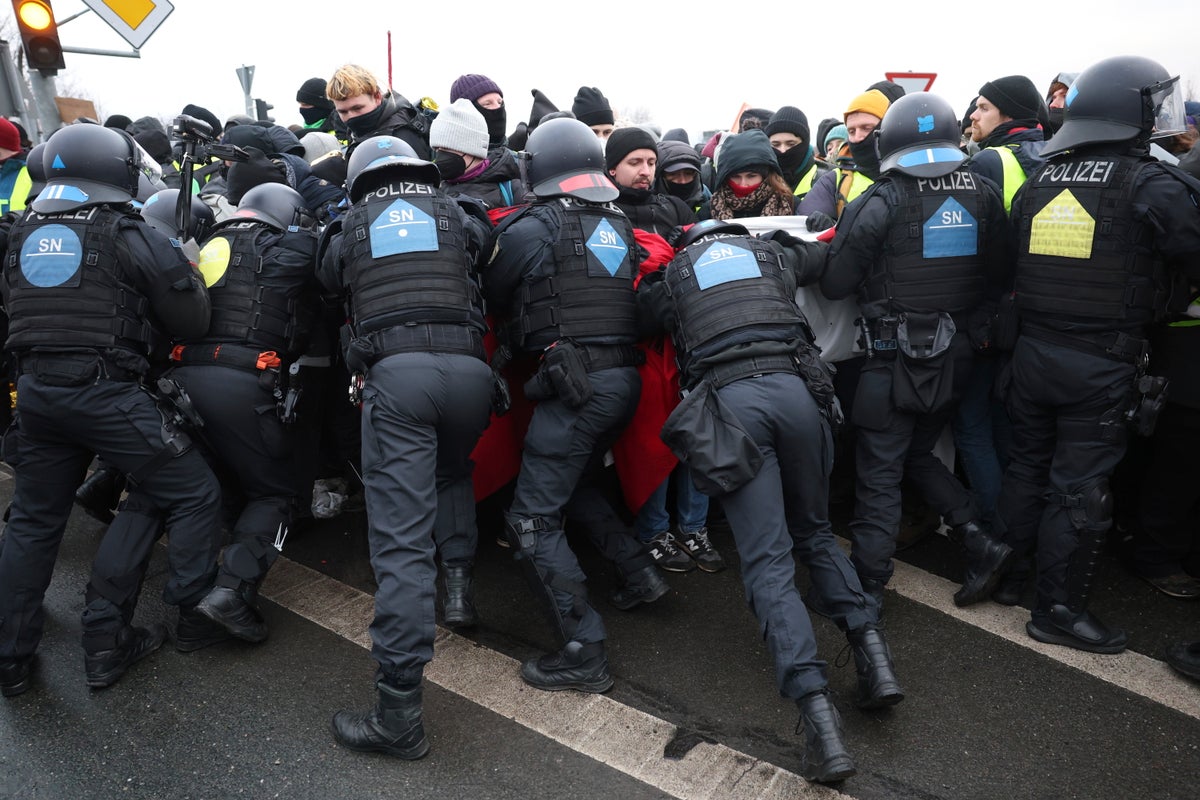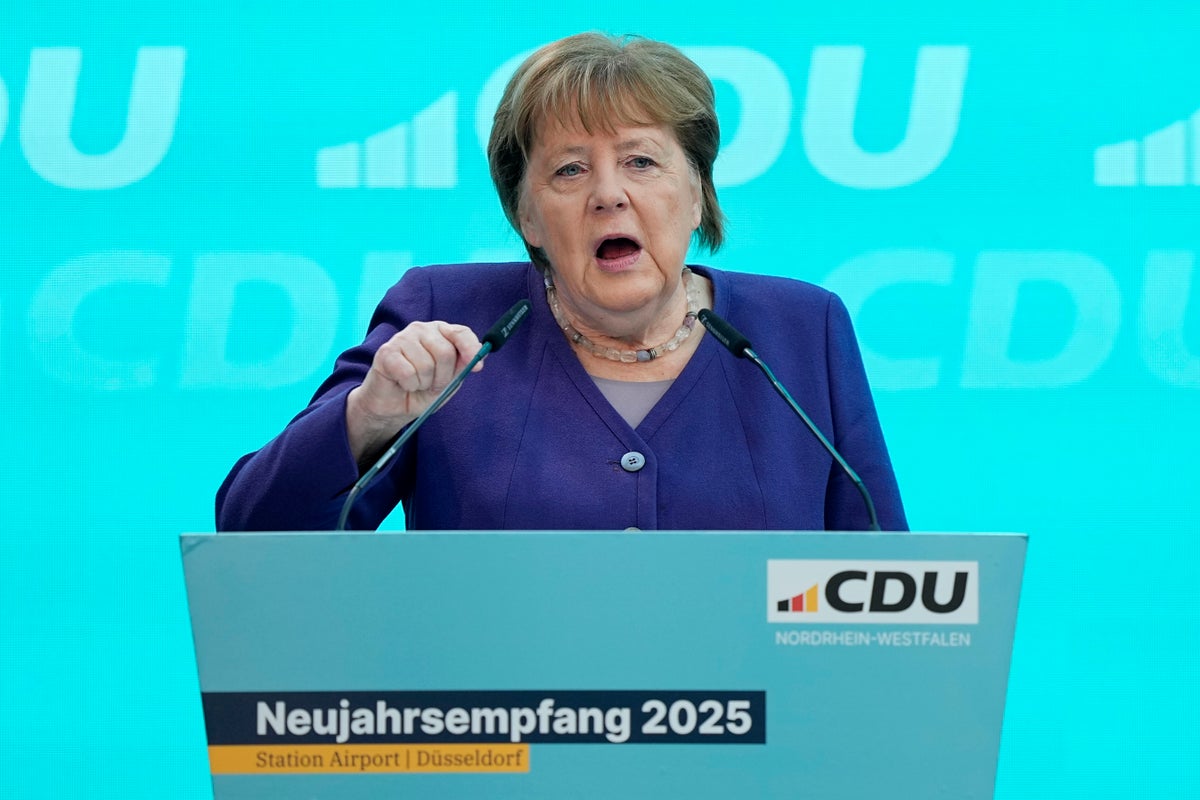Germany heads to the polls later this month — here’s all the key information. Germany is set for a snap election on 23 February after Chancellor Olaf Scholz's coalition government collapsed, triggering a race between the established parties and a rising tide of smaller contenders. Voters will head to the polls to decide the country's future direction amidst a shifting political landscape. The war in Ukraine will be a key issue for voters, as will a slew of violent attacks which have raised broader questions about migration.
![[German Chancellor Olaf Scholz]](https://static.independent.co.uk/2025/01/29/10/Germany_Election_27993.jpg)
The re-election of US President Donald Trump, and his relationship with Germany, will be at the forefront of many voters’ minds. Here are the main parties standing, what the polls are saying, and the key issues at stake. The two major parties, Scholz's centre-left Social Democrats (SPD) and the conservative alliance of the Christian Democrats (CDU) and Christian Social Union (CSU), have both seen their support erode in recent years. This decline has opened the door for smaller parties to gain traction, including the Greens and the far-right Alternative for Germany (AfD). All four of these parties have put forward candidates for the chancellorship.
![[People protest outside the Reichstag against the far-right party AfD in 2024]](https://static.independent.co.uk/2024/09/02/12/Germany_Election_Reactions_72862.jpg)
Adding to the complexity of the electoral field are the pro-market Free Democrats (FDP), the far-left Linke, and the leftist Sahra Wagenknecht Alliance (BSW). Current polling suggests these parties are teetering on the edge of the 5 per cent threshold required to secure seats in parliament, raising the stakes for their campaigns. The election outcome will determine not only the next chancellor but also the composition of the parliament and the potential for new political alliances.
![[Germany’s relationship with US President Donald Trump will be at the forefront of many voters’ minds]](https://static.independent.co.uk/2025/02/10/09/09-b0905659cd0a4e2aaf41da4913a49d51.jpg)
The conservatives have been leading nationwide polls for more than two years and are at 29 per cent, according to the latest survey published by INSA on 8 February, followed by the AfD at 21 per cent. Scholz's SPD, with 16 per cent, has dropped to third from the first place it achieved in the 2021 election. It is followed by the Greens on 12 per cent and the BSW on 6 per cent. The FDP is polling at 4 per cent and the Left is at 5 per cent.
Analysts say polls can shift quickly as voters are less loyal to parties than they once were. In the 2021 election campaign, the conservatives went from frontrunner to runner-up within a few months. The conservatives' leader, Friedrich Merz, in particular, is considered to be prone to gaffes and quick to anger. Ukraine. Germany's mainstream parties all favour helping Ukraine fend off Russia's invasion, while the AfD and BSW want an end to weapons deliveries to Kyiv and a resumption of good relations with Moscow.
However, Scholz and his SPD have recently struck a more cautious tone - emphasising the need for diplomacy - than the conservatives, Greens and FDP, who are all in favour of Germany delivering long-range Taurus missiles to Kyiv. Reviving the economy. Scholz has proposed incentivising private investment and modernising infrastructure with an off-budget, €100 billion fund. His SPD also plans a direct tax refund of 10 per cent on equipment investments by businesses.
The Greens' Robert Habeck has, like Scholz, called for reform of Germany's constitutionally enshrined debt brake to allow for higher public spending. Merz had also signalled some openness to a moderate reform of the debt brake but his party's manifesto has pledged to retain it. The AfD and the FDP are fierce defenders of the limit on public borrowing. The CDU/CSU manifesto has proposed extensive financial relief for companies and citizens, including income and corporate tax cuts, and lower electricity charges. They have not said how these would be financed.
The AfD wants Germany to ditch the euro, reintroduce the Deutsche Mark and potentially leave the EU. Migration. A slew of violent attacks linked to foreign suspects in Germany have compounded public concerns over security and migration, prompting political parties to demand stricter measures on migration. After the most recent attack on 22 January, Merz sponsored a draft bill with AfD support, breaking a taboo against cooperating with the far-right party.
However, he later failed to secure a majority for the bill as some of the deputies from his own party refused to support it. In general, the conservative CDU has adopted a stricter stance on immigration in recent years, calling for pushing back asylum seekers at the borders, and for limits on family reunifications and naturalisation for refugees. The anti-Islam, anti-migration AfD has called for borders to be closed and asylum seekers to no longer have the right to family reunification. Some senior AfD members have gone further in their comments and were present at discussions among far-right activists about deporting millions of people of foreign origin, including German citizens.




















.jpeg?auto=webp&width=800)

